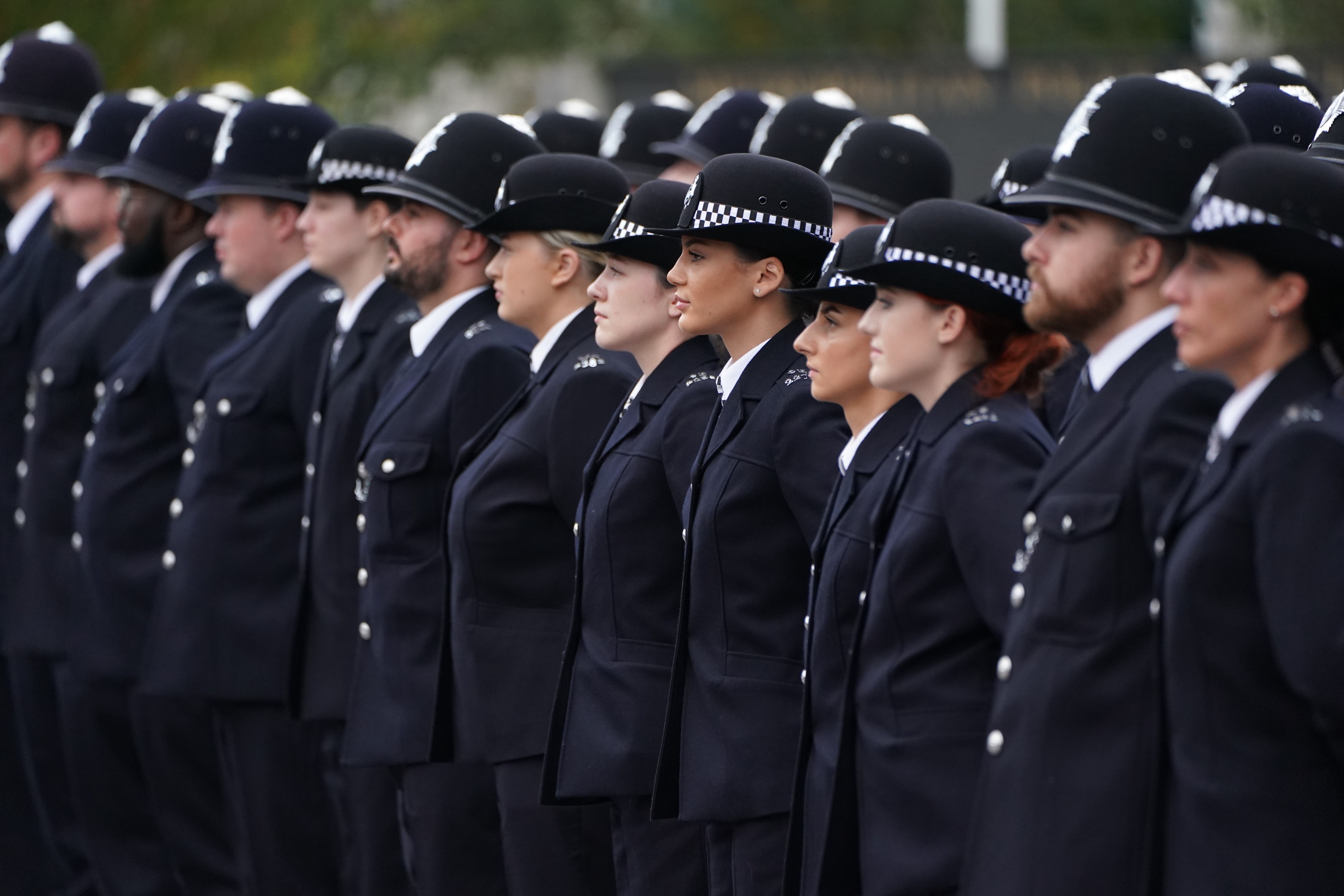Vetting of officers should be done by independent body, police chief suggests
Marc Jones, chairman of the Association of Police and Crime Commissioners, said policing ‘has a huge amount of work to do’.

Your support helps us to tell the story
From reproductive rights to climate change to Big Tech, The Independent is on the ground when the story is developing. Whether it's investigating the financials of Elon Musk's pro-Trump PAC or producing our latest documentary, 'The A Word', which shines a light on the American women fighting for reproductive rights, we know how important it is to parse out the facts from the messaging.
At such a critical moment in US history, we need reporters on the ground. Your donation allows us to keep sending journalists to speak to both sides of the story.
The Independent is trusted by Americans across the entire political spectrum. And unlike many other quality news outlets, we choose not to lock Americans out of our reporting and analysis with paywalls. We believe quality journalism should be available to everyone, paid for by those who can afford it.
Your support makes all the difference.A police chief has suggested vetting should be taken out of the hands of forces and carried out by an independent body to stop rogue officers slipping through the net.
Marc Jones, chairman of the Association of Police and Crime Commissioners (APPC), said the idea “needs to be explored” while reforms are considered in the wake of the David Carrick case and a series of other scandals which have plunged the service into crisis.
Sacked police constable Carrick served as a Metropolitan Police officer for more than 20 years before being unmasked as one of the country’s most prolific sex offenders.
Policing has a huge amount of work to do to get its house in order
He admitted 49 criminal charges, including 24 counts of rape against 12 women, as it emerged he had faced complaints about his behaviour before he joined the force and numerous other times throughout his career, but no action was taken.
The 48-year-old – who used his position to win the trust of his victims and then intimidate them – was only suspended from duty in October 2021 when he was arrested for rape.
Prime Minister Rishi Sunak previously promised reforms to make sure rogue police officers have “no place to hide”.
Meanwhile, Met Commissioner Sir Mark Rowley warned that two or three of his officers are expected to appear in court each week to face criminal charges as efforts to root out corruption within the ranks continue.
Mr Jones, who is the police and crime commissioner (PCC) for Lincolnshire, said policing has “a huge amount of work to do to get its house in order” and there will be “story after story” while that happens but “that’s a process they’ve got to go through”.
Speaking to reporters on Friday, he said vetting was vital for hiring and keeping the “right people in policing”, arguing that this should not be handled individually by each of the 43 police forces in England and Wales.
“I just don’t accept that every single police force in this country has to do it itself. And I think that will create a massive amount of variation.
“So I think we need to just look at that as a system and say, can we do it better, more efficiently, more effectively and provide an additional level of confidence to the public that this has been done right,” he said.
Asked by the PA news agency if he thinks vetting should instead be handled by an independent body, Mr Jones replied: “I think it needs to be explored.
“If you were starting again, what would you create? And if the answer is you would create a system with 43 separate forces, each doing their own vetting to different and varied standards, I’d be surprised…
“I honestly think it’s just something we need to explore. The answer isn’t always: get a cop to do it.”
West Yorkshire’s deputy mayor for policing and crime Alison Lowe said she was “filled with terror about what next is coming around the corner” after the “terrible cases” that have come to the fore over the last few years.
But she disagreed with the idea of having a national vetting system, adding this would make her feel “uneasy”.
“There’s lots of great practice taking place in some areas, which is not modelled in others,” she said, stressing that any single system would need to be “of the highest calibre”.